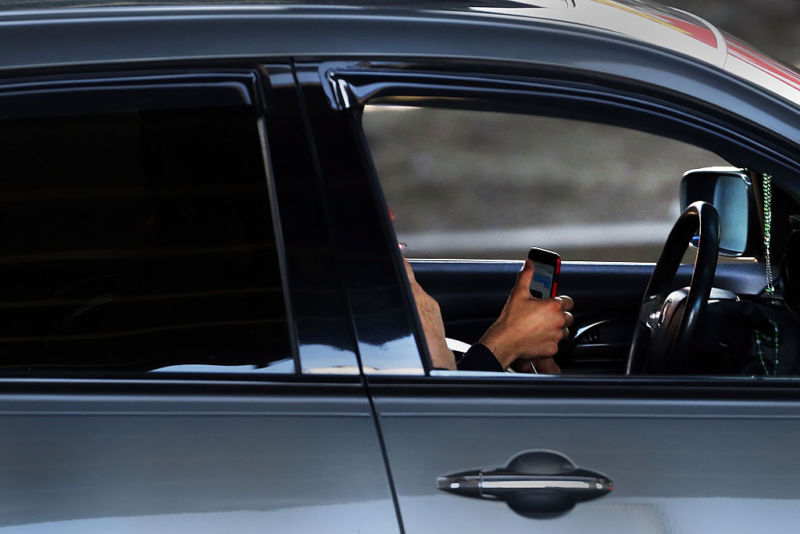
Weeks ago, Apple was sued on accusations that its FaceTime app contributed to the highway death of a young girl in Texas. The girl's family claims that the iPhone maker should have deployed technology to prohibit motorists from using the app.
Now there's another lawsuit targeting Apple's decision not to deploy a lock-out mechanism. This one—from an injured Southern California motorist—concerns locking out drivers from texting.
This lawsuit from accident victim Julio Ceja, who was rear-ended by a texting driver, does not seek any monetary damages. Instead, it demands that a Los Angeles Superior Court judge block Apple from selling iPhones in the Golden State until the devices are updated to include Apple's patented technology to lock drivers out of their phones while driving.
"Apple has the ability to outfit its iPhones with a lock-out device that would disable the smartphone while being used by motorists. In fact, it has had this technology since 2008, and was granted a patent on it by the US Patent and Trademark Office in 2014. Yet, fearful that such a device would cause it to lose valuable market share, Apple refuses to employ the technology, choosing instead to allow the massive carnage to occur," according to the motorist's lawsuit (PDF).
The patent at issue concerns a "lock-out mechanism" to prevent iPhone use by drivers; it describes a "motion analyzer" and a "scenery analyzer." However, whether this technology is reliable is questionable. Apple did not immediately respond to Ars for comment.
According to the patent:
The motion analyzer can detect whether the handheld computing device is in motion beyond a predetermined threshold level. The scenery analyzer can determine whether a holder of handheld computing device is located within a safe operating area of a vehicle. And the lock-out mechanism can disable one or more functions of the handheld computing device based on output of the motion analyzer, and enable the one or more functions based on output of the scenery analyzer.
US highway deaths increased by more than 10 percent year-over-year during the first half of 2016, according to the latest figures available. One of the main reasons: distracted driving with mobile phones.
The latest suit claims a breach of California's unfair business practices law.
"Apple engaged in unfair business acts and practices when it provided advanced smartphone technology to driving consumers, without providing a lock-out device for the product when being used by engaged motorists, while knowing the extreme dangers caused (by) its product, and while having patented the technology for such a lock-out device," the lawsuit says.
The suit also claims that "Apple had an improper motive—profit before consumer safety—in its failure to install lock-out devices on its iPhones."
reader comments
238